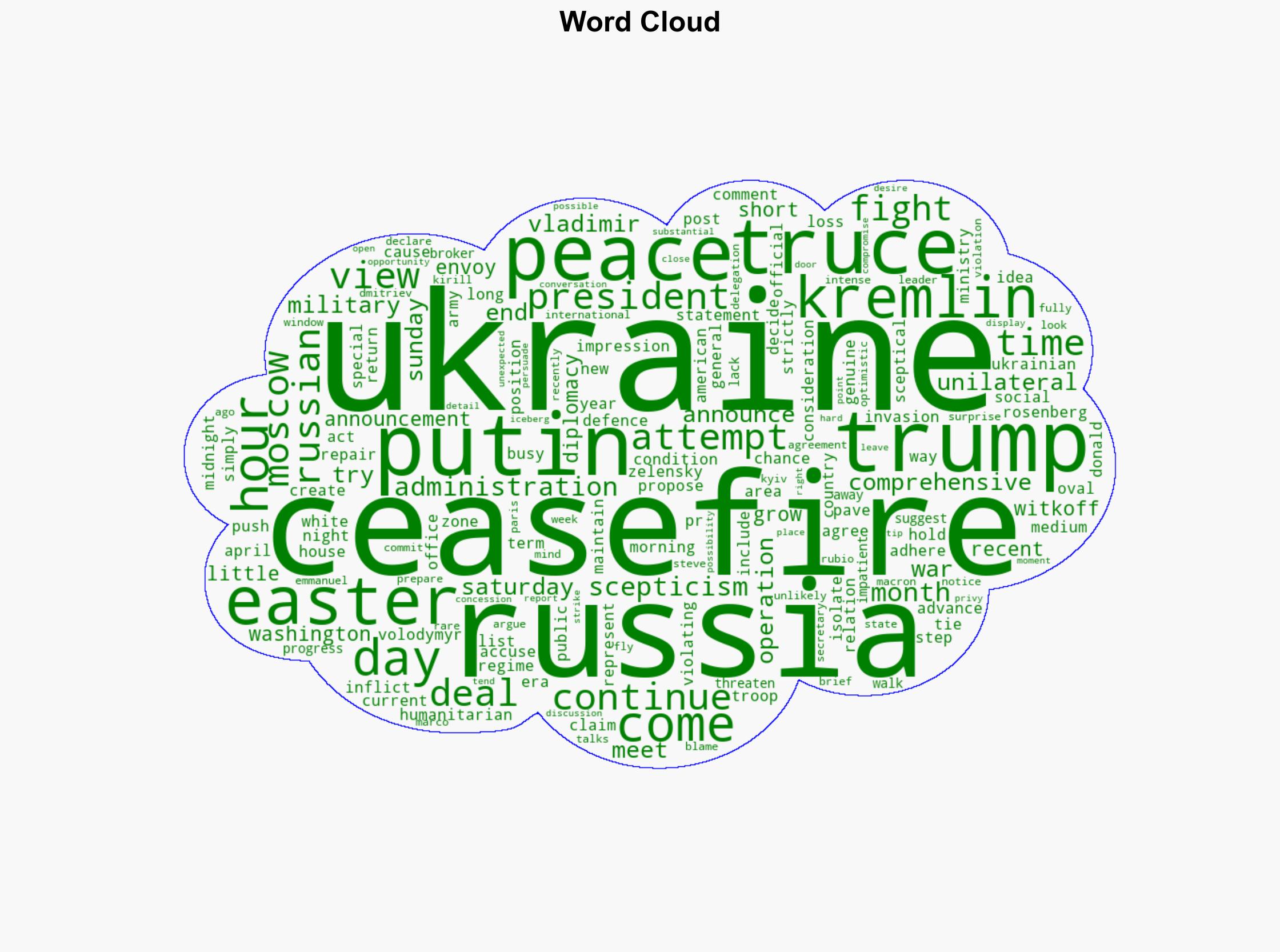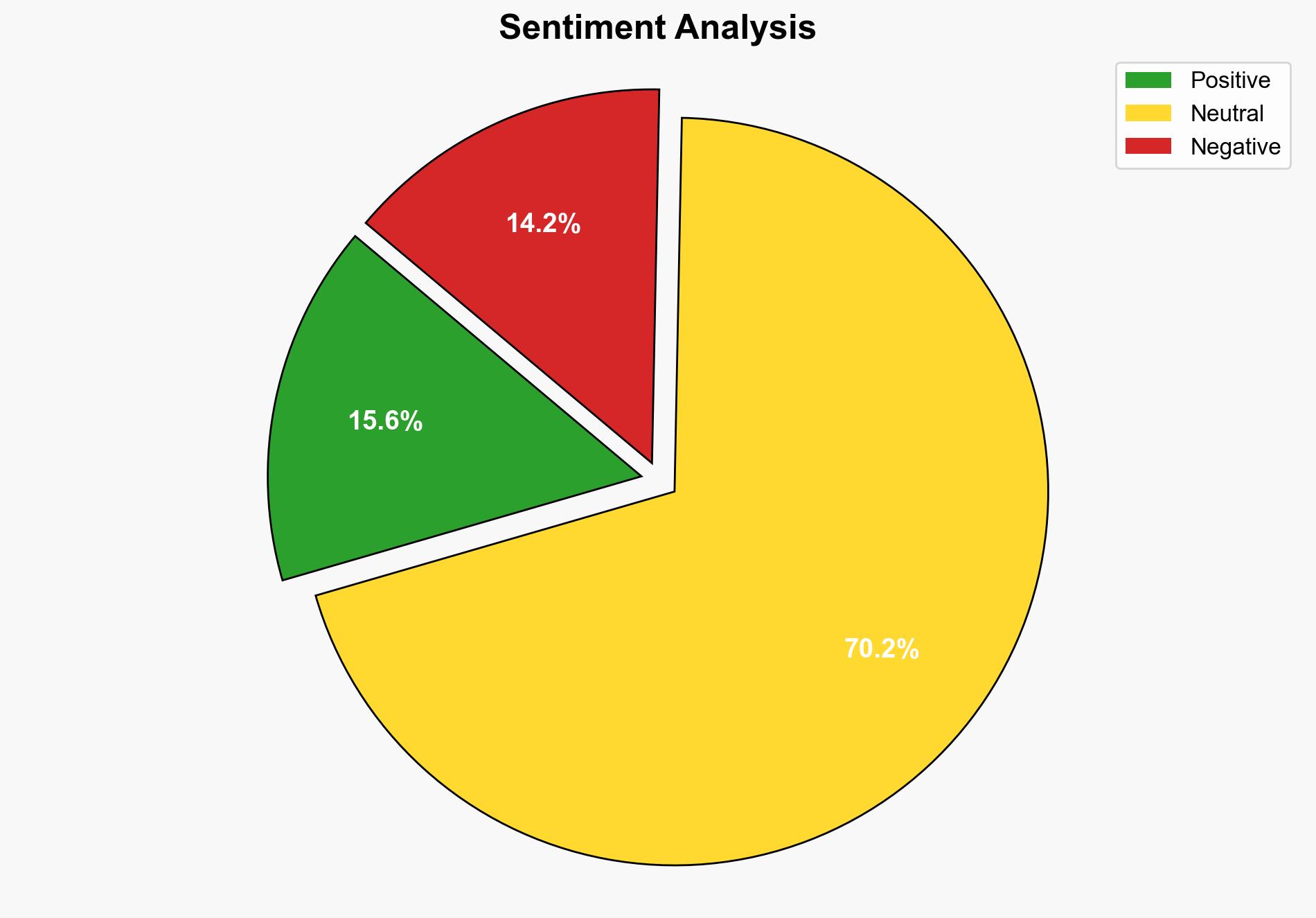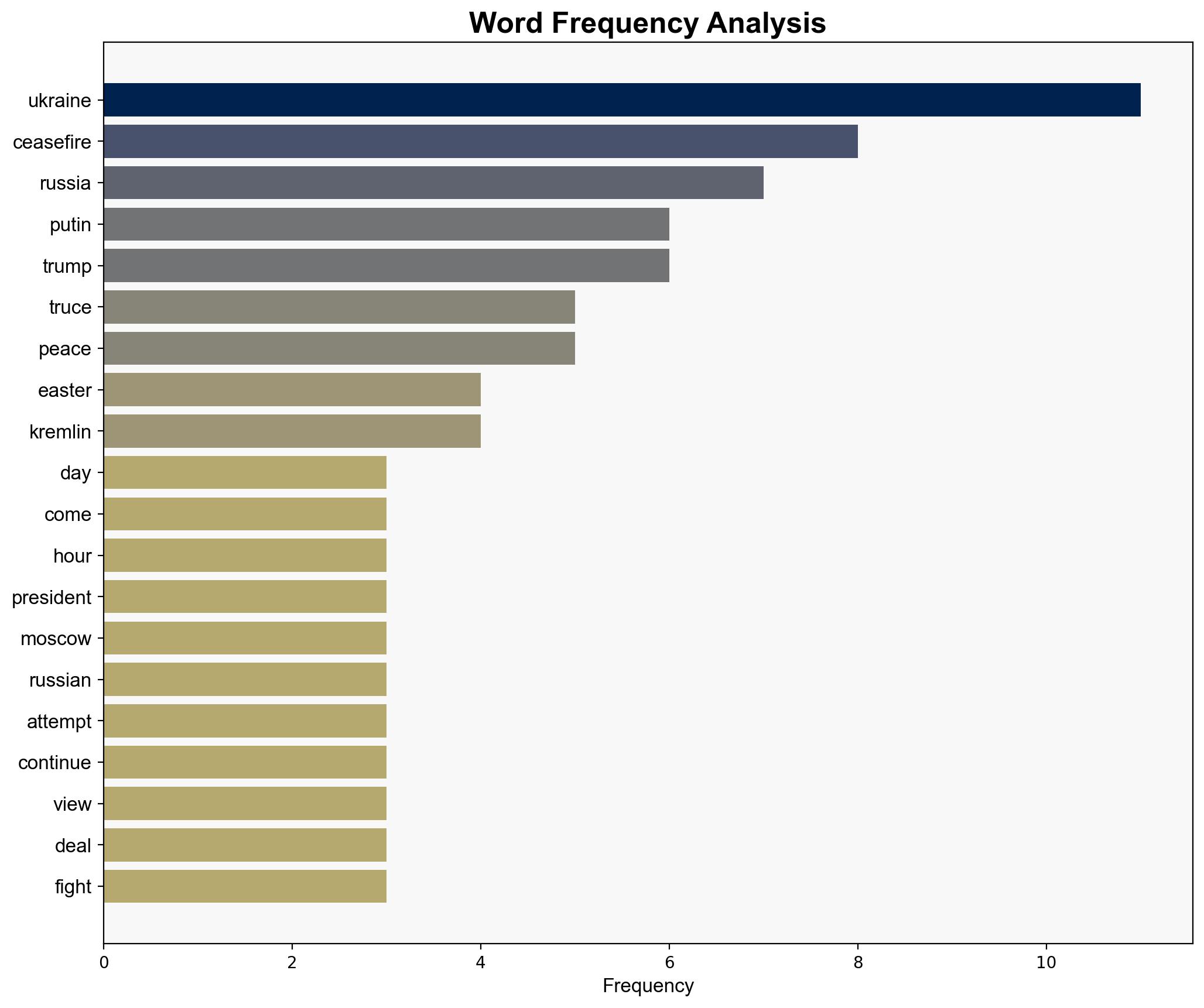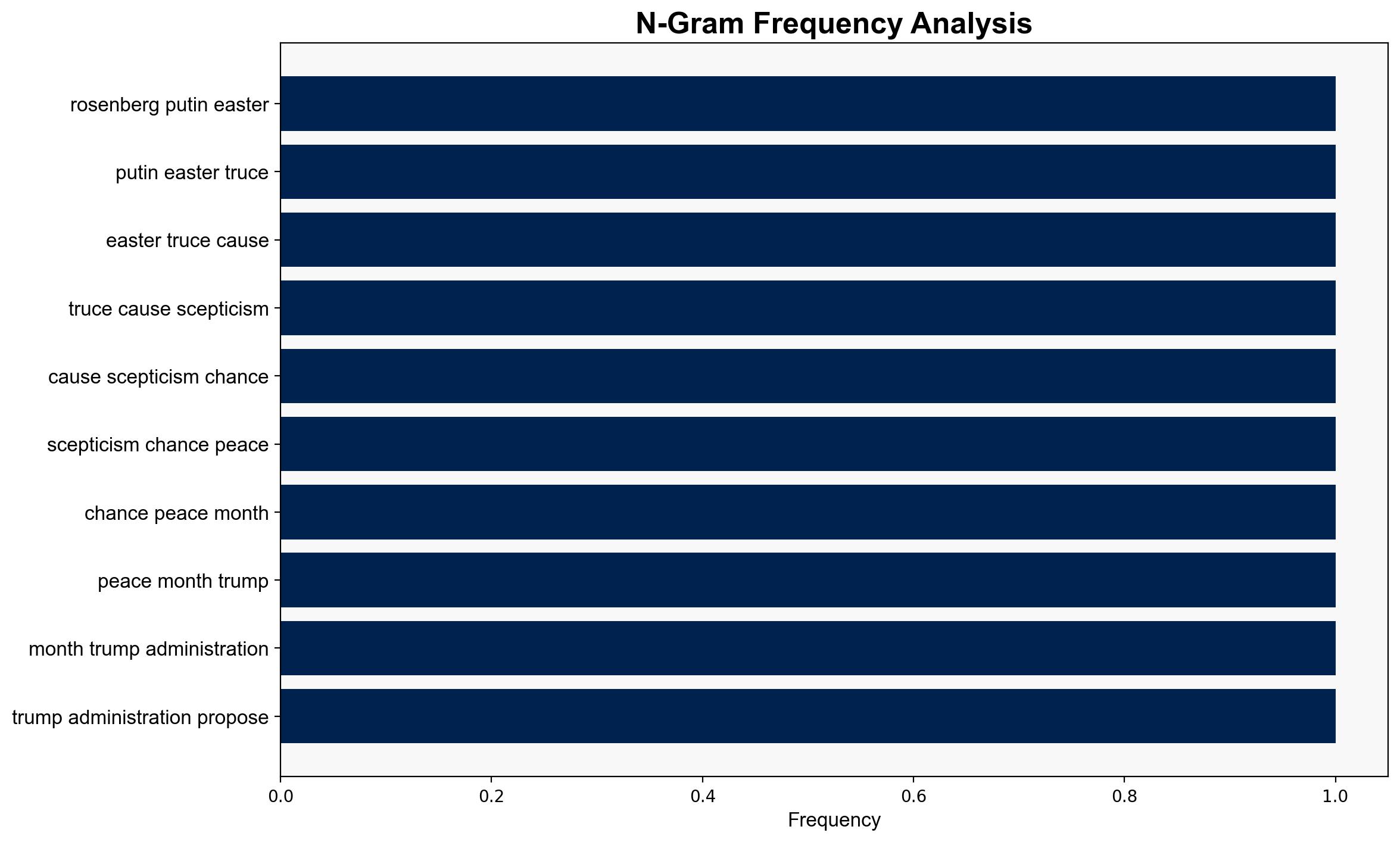Putin’s Easter truce Cause for scepticism or chance for peace – BBC News
Published on: 2025-04-20
Intelligence Report: Putin’s Easter Truce – Cause for Scepticism or Chance for Peace
1. BLUF (Bottom Line Up Front)
The unilateral Easter truce declared by Vladimir Putin is met with skepticism by Ukraine and international observers. While it presents a potential opportunity for peace, the lack of preparation time and ongoing hostilities suggest it may be more of a strategic maneuver than a genuine peace effort. Recommendations include monitoring diplomatic engagements and preparing for potential escalations.
2. Detailed Analysis
The following structured analytic techniques have been applied:
SWOT Analysis
Strengths: The truce could serve as a diplomatic opening, potentially easing tensions and fostering dialogue.
Weaknesses: The short notice and ongoing violations undermine trust and the truce’s effectiveness.
Opportunities: International diplomatic efforts, if leveraged, could lead to a more sustainable peace process.
Threats: Continued military actions and lack of genuine commitment may exacerbate the conflict.
Cross-Impact Matrix
The truce’s impact on regional stability is contingent on its reception by Ukraine and international actors. A successful ceasefire could inspire similar efforts in other conflict zones, while failure may embolden aggressive postures in neighboring regions.
Scenario Generation
Best-case Scenario: The truce holds, leading to renewed peace talks and a gradual de-escalation of hostilities.
Worst-case Scenario: The truce collapses, resulting in intensified conflict and regional instability.
Most Likely Scenario: The truce sees limited success, with sporadic violations and continued diplomatic efforts.
3. Implications and Strategic Risks
The truce highlights vulnerabilities in regional security, with potential for increased military engagements if it fails. Politically, it tests the resolve of international actors to mediate effectively. Economically, prolonged conflict could disrupt regional markets and trade.
4. Recommendations and Outlook
- Enhance diplomatic channels to support sustained dialogue between conflicting parties.
- Prepare contingency plans for potential escalation scenarios.
- Encourage international stakeholders to apply pressure for compliance with ceasefire terms.
- Monitor developments closely to adapt strategies in real-time.
5. Key Individuals and Entities
Vladimir Putin, Volodymyr Zelensky, Steve Witkoff, Kirill Dmitriev, Marco Rubio, Emmanuel Macron.




